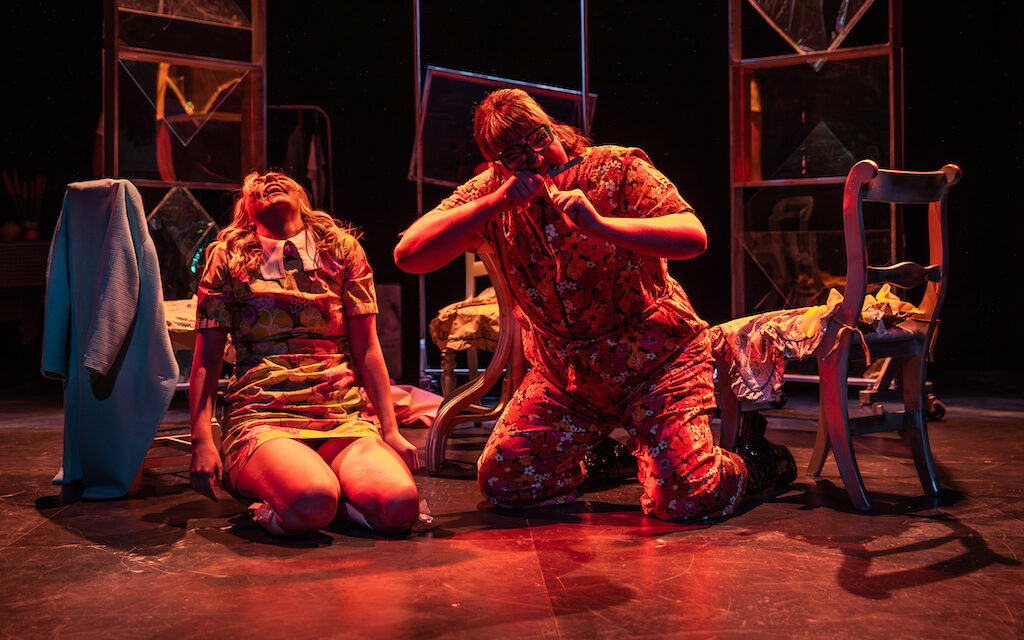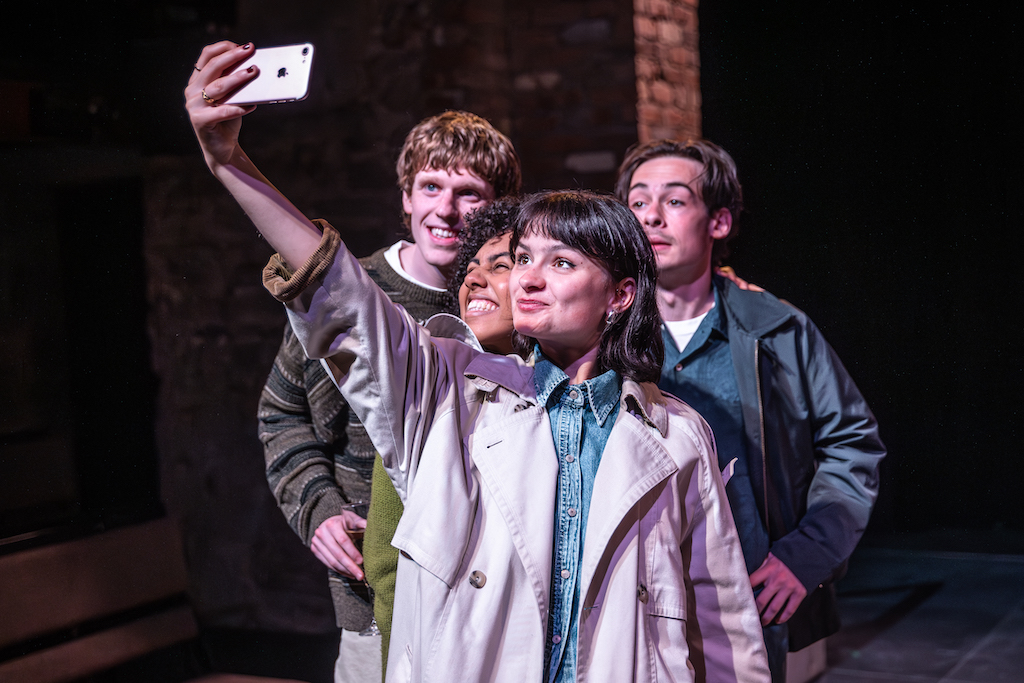
5 – 7 June
DEPOSIT By Matt Hartley
This is a frequently amusing and ultimately thought-provoking play. Written by Matt Hartley, Deposit vividly demonstrates how scrabbling to get on London’s property ladder can corrosively destroy relationships and turn normally generous and well-intentioned individuals into ruthless competitors. Teacher Rachel (Molly Watton Williams) and civil servant Ben (Oscar Gough) are striving to save enough for the deposit on a flat. In desperation they split the rent on a one-bedroom property with two friends, Melanie (Honor Wiggins) and Sam (Kieran Devine). It is a dodgy arrangement which must be hidden from the landlord, but it enables both couples to save.
Melanie works in marketing and Sam is a doctor, and they both earn considerably more than public servants like Rachel and Ben. In the cramped confines of the flat they cannot escape their differences. Initially there is comedy as they face up to the compromises they must make. But serious cracks appear, and widen further when Ben inherits a considerable sum of money. The disintegration of the quartet’s previously amiable relationship is conveyed with wince making realism concerning individual toilet habits, underwear drying in bedrooms, disputes about fridge contents.
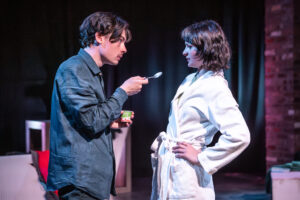
Sam is ambitious and self-made, and given to pedantic assertions that rub up against Ben’s less assured, less driven personality. Melanie is initially all wide-eyed romanticism, excited to see a glimpse of The Shard in the distance, but when the opportunity comes to get a place of her own she is prepared to coldly fracture her fifteen-year friendship with Rachel, whose warmly empathetic nature and quiet determination to teach inner-city kids acts as the moral heart of the play. Vivid and thoroughly engaging performances from the talented cast clearly delineate differences in personality and bring to life the underlying issues that lie behind the stresses and strains they suffer.
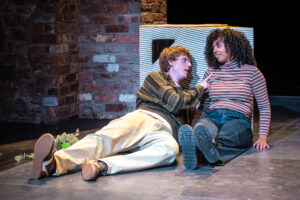
Katie Evans’ set, composed of individual blocks which together form the shape of a house, cleverly pulls apart mirroring the fracturing relationships. And that glimpse of The Shard? It symbolises all the corporate, multinational capitalism that has made London a cosy bolthole for oligarchs, but which makes buying a place of one’s own an unattainable dream for all but the very wealthy. Directed with sparky energy by Amy Iles, Deposit raises important questions about just where our priorities should lie. ‘This is not political’ one character innocently asserts at a crisis point in an argument. Yet, of course, it is political, very much so.
★★★★☆
REVOLT. SHE SAID. REVOLT AGAIN by Alice Birch

Directed by Ella Strauss, this is a brave production, for Revolt. She Said. Revolt Again is a challengingly experimental play that explores the possibility of totally reframing gender politics, perhaps by totally restructuring society. It is presented as a series of vignettes, initially comic but becoming increasingly dark and wildly surreal. Designer Lillyanna Bryan has created a set that is suggestive of broken mirrors, and that idea of fragmentation seems entirely appropriate for a play that avoids neat and tidy clarity.
In the earlier episodes writer Alice Birch unpicks the assumptions that underpin so much of our language about male-female relationships. Her purpose is seen most clearly in a mordantly funny would-be seduction scene between an ardent man (Sam Grove) and a far from compliant woman (Emily Hurst). ‘I want to make love to you,’ he cries, but she insists the preposition should be ‘with,’ and from then on the traditional active/passive pattern of such encounters is rigorously scrutinised. When he says he wants to ‘peel off’ her dress she responds with ‘I am not a potato.’
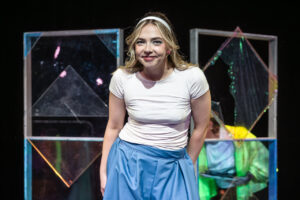
Later scenes are less clearly structured. Birch is a passionately angry writer, so much so that it seems that conventional modes of expression are not adequate for her to convey her message. There is for example a scene between three generations of women, with Spike Maxwell as the grandmother, Emaan Durrani as the daughter and Emily Hurst as the grandchild. The grandmother denies ever having given birth, the daughter seems bewildered and the grandchild appears to be barely functioning, but we are left to come to our own conclusions as to any meaning that all this may have. Similarly, images of bluebells and watermelons reoccur throughout, though quite what they signify remains elusive.
What is most certainly not difficult to discern is the quality of the acting, which is very fine throughout. All four actors perform fearlessly and with considerable skill. After building up to a kind of crazed bacchanalia of wild movement and whirling words the play ends contemplating a world free of men, and free perhaps of many of the systems and structures that we take for granted, but which are inherently misogynistic.
★★★☆☆ Mike Whitton, 6th June 2025
Photography credit: Craig Fuller

